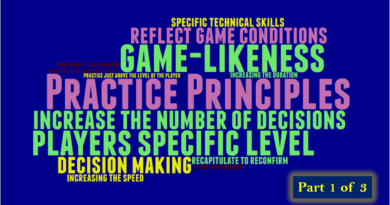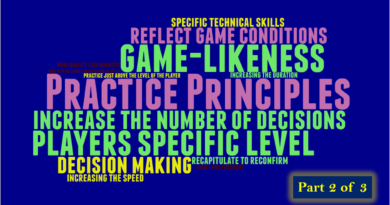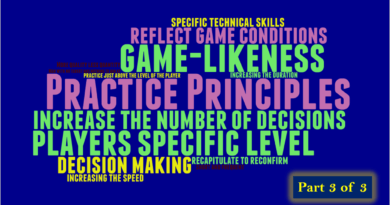8. Knowing that Saturation exists
I really needed to know this!
The session was going so well,
the player was learning something new,
both of us were enjoying the practice
… then it happened!
Suddenly what could have been described as a perfect lesson changed into a mini disaster!
 Everything started to go wrong
Everything started to go wrong
This was a perfect example of practice saturation.
Shuttles were hit into the net, out the side and the player seemed incapable of striking the shuttle where and how they wanted.
I asked them to keep going, and they promised to “focus” more, but nothing improved.
The harder they ‘tried’ the more they were unsuccessful 🙁
I searched hard for an answer, and yes, I became frustrated and so did the player. The practice had been so great just 30 seconds before!
If only I had realised that Saturation had been reached
Nowadays when working with novice players and those who are progressing rapidly, I’m always on the lookout for Saturation. Sometimes it happens but not always.
However, it’s no longer a surprise.
I can’t predict when, but I can now see/ feel the signs
Now I do this
I try to keep the practice/learning moving forwards but also I’m prepared to stop it just as I notice Saturation kicking in.
That way the I hope that the player experiences the euphoria of improvement without the disappointment of failure.
However, once I had understood that Saturation existed as a concept, I wanted to know how to predict it, see it, plan for it!
Unfortunately, I’m really not sure why it occurs, hopefully, there are sports scientists reading this that can explain why
I’d love to hear your thoughts
If you are like me, you may find it difficult to believe that Saturation is a ‘thing’.
I certainly struggled with the concept, even though it was happening right in front of me.
You may believe that application, hard work and focus can pull everyone through. Well, sometimes it can.
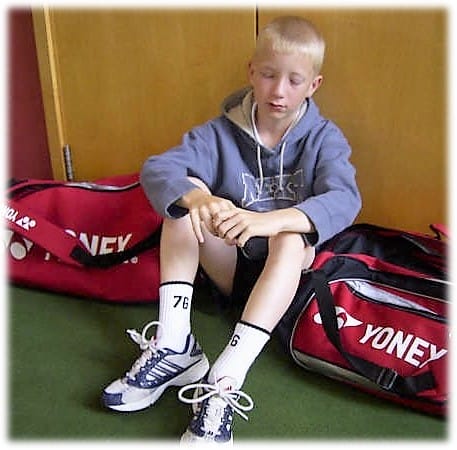 Certainly, it’s worth the experience to continue when things aren’t going well, but not always. There are situations, skills, challenges that will benefit from the learning gained when things dip and don’t go well.
Certainly, it’s worth the experience to continue when things aren’t going well, but not always. There are situations, skills, challenges that will benefit from the learning gained when things dip and don’t go well.
However, this wasn’t the situation I was faced with.
The young player was highly motivated, and I wanted to ‘ride that wave’ of motivation.
My motivation was also high as every aspect of the practice seemed to be having the desired effect. Initially, I didn’t realise that the sudden increase in mistakes could be caused by the time we had spent in this ‘perfect’ learning zone.
Only after talking (well complaining) to my mentor did I find a new perspective.
“Did I really expect my players to concentrate, and produce new learning throughout a whole session“
that was the question I was asked to consider.
Saturation is the sudden unexpected increase in ‘errors’ following a period of ‘great’ practice only minutes before
The signs
- A motivated player who seems to improve and grasps the goal of the practice
- A period of success, almost ‘perfect’ practice, then mistakes suddenly appear
- As hard as the player tries the mistakes keep happening and the ‘perfect’ practice disappears
- If the practice is made easier, the player can’t seem to achieve the standards from previously
- Frustration takes over all parties – players, parents and coaches
What can you do
- Expect it, then you won’t be surprised and you’ll be ready
- Don’t stress, this applies equally to Coaches, Players and watching Parents
- Explain to the player prior to the practice what may happen when ‘Saturation’ occurs: mistakes suddenly start happening, especially after some great work
- Don’t always try to work through it – try this and let me know what happens 🙂
- Take a mini-break or change to something completely different
Why it occurs (I think)
- It’s tough (for Player & Coach) to continually develop a skill constantly for say 20 – 30 minutes
- Unconscious learning is mentally exhausting (I’m not sure if I know how to explain this)
- High levels of desire and motivation may not allow for practice mistakes and errors 🙁
- Skills may seem unconsciously automatic but in fact, need huge amounts of specific attention (again I don’t really know how to describe this)
Have you experienced Saturation or do you belive its just ‘a lack of focau & concentratio’ ?
I would be very interested in your thoughts?

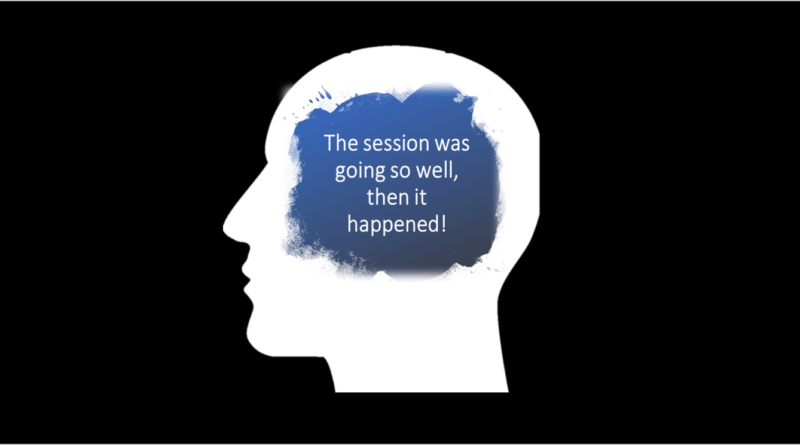
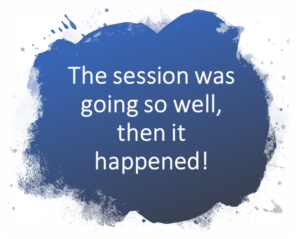 Everything started to go wrong
Everything started to go wrong